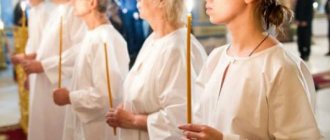Frequent duas of the Prophet ﷺ
One of the prayers expresses the Messenger ﷺ’s request to the Creator to strengthen his heart “on His religion”; in this prayer, Muhammad ﷺ calls the Almighty “O Who changes the state of hearts.” Muslim in his “Sahih” in the hadith indicates that Muhammad ﷺ once said that Allah holds a person’s heart “between two fingers”, “which He disposes of as He wishes.” After these words, Muhammad ﷺ turned to the Creator with a prayer that He would make it “so that my heart obeys You!” Text of the dua in Arabic, transcribed and translated into Russian:
يا مقلب القلوب ثابت قلبي علي الدينك
“Ya muqalliba-l-kulubi, sabbit kalbi *ala dinika” “ O changer of the state of hearts, strengthen my heart on your religion ” (hadith from Tirmidhi).
Anas bin Malik reported in his hadith that the Messenger of Allah ﷺ often turned to the Almighty with a prayer that the Almighty would protect him from laziness and weakness, sadness and anxiety, from cowardice and cowardice, as well as from the burden of debts and stinginess and from any oppression from the people around him. This prayer begins with the words “Allahumma inni a'uҙu bika mina-l'ajzi...”:
Abu Musa al-Ash'ari testified that most often Muhammad ﷺ turned to the Creator with a prayer in which he asked to forgive him ignorance and his sins, excesses committed in his personal life, as well as for everything that the Creator knows better about Muhammad ﷺ than he knows about himself. In this prayer he asked to forgive him all those mistakes that he made thoughtfully or without thinking, out of frivolity or ignorance, intentionally or unintentionally. He turned to God with a prayer to forgive him everything that comes from him and is displeasing to the Lord.
In his words, the Messenger ﷺ turns to the Creator seeking protection and help. He asks the Lord to show him the way and support him in the fight against his enemies. He also turns to God with a prayer to instruct him, to teach him the correct worship of the Lord. Muhammad ﷺ mentions his own sins in his prayer and asks the Creator to accept his repentance and cleanse him of his sins.
The dua of the Prophet Muhammad ﷺ can be read in different situations. It is good to read them for protection from all kinds of troubles and misfortunes.
Salavat to the Prophet Muhammad ﷺ
All rights reserved. All rights reserved. All rights reserved. ِكْتَ عَلـىإبْراهـيمَ وَعَلـى آلِ إبْراهيم، إِنَّكَ حَمـيدٌ مَجـيد Translation of the meaning: O Allah, bless Muhammad and the family
of Muhammad as You blessed Ibrahim and the family of Ibrahim, verily You are Worthy of Praise. Glorious! O Allah, send blessings to Muhammad and the family of Muhammad, as You sent them to Ibrahim and the family of Ibrahim, truly. You are Praiseworthy, Glorious!
Translit: Allahumma salli 'ala Muhammadin wa 'ala ali Muhammadin, kya-ma sallayta 'ala Ibrahima wa 'ala ali Ibrahima, inna-kya Hamidun, Majidun. Al-lahumma, barik 'ala Muhammadin wa 'ala ali Muhammadin kya-ma barakta 'ala Ibrahima wa 'ala ali Ibrahima, inna-kya Hamidun, Majidun!
Making a prayer after prayer
According to the Messenger ﷺ, dua is worship of the Almighty. After fard prayers you should read:
- Istighfar three times, asking the Lord for forgiveness;
- After this, one should pronounce the praise of the Creator as the one from whom comes security and peace and who has no shortcomings, who has Generosity and Greatness;
- Next, you should turn to the Lord with a request for help to remember Him and thank Him worthily, worshiping Him in the best possible way;
- You can read salawat both after fard and after sunnah prayers. This will mean a prayer to the Creator to grant the Prophet Muhammad ﷺ and all His family even more greatness. Salavat begins with the words “Allahumma, salli 'ala Muhammadin...”;
- After this, one should read Ayat al-Kursiy. As it was said by the Messenger Muhammad ﷺ, there will be no barriers to entering Paradise for those who read Ayat al-Kursiy after fard prayer. Also, the Prophet Muhammad ﷺ mentioned that the one who says thirty-three times after each prayer “Subhan-Allah” and thirty-three times “Alhamdulil-Llah” and thirty-three times “Allahu Akbar” and says for the hundredth time “La ilaha illa Allahu wahdahu” la sharika lyah, lahalul mulku wa lahalul hamdu wa hua 'ala kulli shayin kadir,” will be forgiven by Allah and all his sins will be forgiven, even if there are as many of them as there is a lot of foam in the sea;
- After this, you should read ten times: “La ilaha illa Allahu wahdahu la sharika lah, lahul mulku wa lahul hamdu wa hua ala kulli shayin qadir,” after which you can raise your hands at chest level, holding your palms up, and read the dua of the Prophet Muhammad ﷺ or any others, if they do not contradict Sharia;
- Next, a person can turn to the Almighty with any dua, with those needs and requests that he needs.
Dua is a form of worship of the Almighty, and when a person makes a request to the Creator, he confirms with this action his own belief that the Almighty is the only one who can give a person everything that a person needs, and that only He should be relied upon man, and only to Him should a person turn with prayer. The Almighty loves it when people turn to him with prayers often, if these requests do not contradict and are permitted by Sharia.
For a Muslim, dua is a weapon given to him by the Lord. The Prophet ﷺ once asked the believers if he could teach them a means that would help them overcome any troubles and misfortunes. And the companions of the Prophet Muhammad ﷺ said that they wished for this. And then the Prophet Muhammad ﷺ said that they should read the dua “ La illaha illa anta subhanakya inni kuntu minaz-zalimin ,” and if they read this prayer, then the Almighty will hear and answer. According to the words of the Prophet ﷺ, angels stand next to the person reading the prayer, and when they say: “Amen,” the request read in the prayer is fulfilled.
Dua and dhikr after sunnah prayer
Shaykh al-Islam Yahya ibn Sharaf al-Nawawi said in his book Al-Adhkar (page 70):
“All scholars agreed on the desirability of saying words of remembrance (dhikr) after prayer. There are many reliable hadiths that give examples of what words the Prophet (sallallahu alayhi wa sallam) uttered in such cases.”
Azkars read by the Prophet (sallallahu alayhi wa sallam) after prayer
1. Astaghfiru-Llah, Astaghfiru-Llah, Astaghfiru-Llah. Allahumma anta-s-salamu wa min-kya-s-salamu, tabarakta, ya Za-l-jalali wa-l-ikram!
اللَّهُمَّ أنْتَ السَّلاَمُ ، وَمِنْكَ السَّلاَمُ ، تَبَارَكْتَ ي َاذَا الجَلاَلِ وَالإكْرَامِ
Translation: “I ask Allah for forgiveness. I ask Allah for forgiveness. I ask Allah for forgiveness. O Allah, You are Peace and from You comes peace, blessed are You, O Possessor of greatness and generosity!”
It is reported that Sauban (radiyallahu 'anhu) said: “After finishing praying, the Messenger of Allah (sallallahu alayhi wa sallam) always asked Allah for forgiveness three times, and then said: “Allahumma anta-s-Salamu wa min-kya-s- salamu, tabarakta, ya Za-l-jalyali wa-l-ikram!” (O Allah, You are Peace and from You comes peace, blessed are You, O Possessor of greatness and generosity!).” Al-Auza'i, who was one of the transmitters of this hadith, was asked: “How [should] ask Allah for forgiveness?” - [to which] he replied: “Say: “I ask Allah for forgiveness, I ask Allah for forgiveness.” (Astaghfiru-Llah, astaghfiru-Llah).” (Muslim)
2. La ilaha illa-Allahu wahda-hu la sharika la-hu. La-hu-l-mulku, wa la-hu-l-hamdu wa hua 'ala kulli shai'in kadir! Allahumma, la mani'a li-ma a'taita, wa la mu'tiya li-ma mana'ta wa la yanfa'u z-l-jaddi min-kya-l-jadd.
اللَّهُ هُ الحَمْدُ وَهُوَ على كُلّ شئ قَدِيرٌ، اللَّهُمَّ لا مانِعَ لِمَا أ عْطَيْتَ، وَلاَ معطي لما مَنَعْتَ، وَلا يَنْفَعُ ذا الجد مِنْكَ الجَ دُّ
Translation: “There is no god but Allah alone, Who has no partner. Dominion belongs to Him, praise belongs to Him, He can do everything! O Allah, no one will deprive what You have given, and no one will give what You have deprived, and the wealth of the one who has wealth will be useless before You.”
It is reported that al-Mughira bin Shu'ba (radhiyallahu 'anhu) said: “After each obligatory prayer, the Prophet (sallallahu alayhi wa sallam) used to say: “La ilaha illa-Allahu wahda-hu la sharika la-hu.” La-hu-l-mulku, wa la-hu-l-hamdu wa hua 'ala kulli shai'in kadir! Allahumma, la mani'a li-ma a'taita, wa la mu'tiya li-ma mana'ta wa la yanfa'u z-l-jaddi min-kya-l-jadd.” (There is no god except Allah alone, Who has no partner. To Him belongs sovereignty, to Him be praise, He can do everything! O Allah, no one will deprive what You have given, and no one will give what You have deprived, and useless before You will have the wealth of the one who has wealth).” (Al-Bukhari, Muslim)
3. La ilaha illa-Allahu wahda-hu la sharika la-hu. La-hu-l-mulku, wa la-hu-l-hamdu wa hua 'ala kulli shai'in kadir! La hawla wa la quwwata illa bi-Llah, la ilaha illa-Llahu wa la na'bud illa iya-hu. La-hu-n-ni'matu wa la-hu-l-fadlu, wa la-hu-s-sana'u-l-hasan. La ilaha illa-Allahu, mukhlisina la-hu-d-dina, wa lau kariha-l kafirun!
All rights reserved. ُ الحَمْدُ وَهُوَ على كُلّ شئ قَدِيرٌ، لا حَوْلَ وَلاَ قُوَّةَ إِلاَ All rights reserved. النِّعْمَةُ ولَهُ الفَضْلُ، وَلَهُ الثَّناءُ الحَسَنُ، لا إلهَ إِلا َّ الله مُخْلِصِينَ لَهُ الدِّينَ وَلَوْ كَرِهَ الكافِرُونَ
Translation: “There is no god but Allah alone, Who has no partner. Dominion belongs to Him, praise belongs to Him, He can do everything! There is no power and strength except Allah, and we do not worship anyone except Him. He shows good deeds and mercy, and He (should be given) due praise. There is no god but Allah, and we are sincere in our confession of religion before Him, even if it is hateful to the unbelievers!”
It is reported that after each prayer, 'Abdullah bin az-Zubayr, may Allah be pleased with them both, said: “La ilaha illa-Allahu wahda-hu la sharika la-hu. La-hu-l-mulku, wa la-hu-l-hamdu wa hua 'ala kulli shai'in kadir! La hawla wa la quwwata illa bi-Llah, la ilaha illa-Llahu wa la na'bud illa iya-hu. La-hu-n-ni'matu wa la-hu-l-fadlu, wa la-hu-s-sana'u-l-hasan. La ilaha illa-Allahu, mukhlisina la-hu-d-dina, wa lau kariha-l kafirun!” (There is no god except Allah alone, Who has no partner. To Him belongs dominion, to Him be praise, He can do everything! There is no power and strength in anyone except Allah, and we worship no one except Him. He provides benefits and mercy , and to Him (should be given) worthy praise. There is no god but Allah, and we are sincere in confessing religion before Him, even if it is hateful to the unbelievers!). It is reported that Ibn az-Zubayr said: “The Messenger of Allah (sallallahu alayhi wa sallam) said these words after every prayer” (Muslim).
4. Allahumma, a'in-ni 'ala zikri-kya, wa shukri-kya wa husni 'ibadati-kya.
All rights reserved. تِكَ
Translation: “O Allah, help me to remember You, thank You and worship You properly.”
It is reported from the words of Mu'az (radiyallahu 'anhu) that (once) the Messenger of Allah (sallallahu alayhi wa sallam) took him by the hand and said: “O Mu'az, I swear by Allah, verily, I love you and punish you, O Mu'az, never forget to say after each prayer: “Allahumma, a'in-ni 'ala zikri-kya, wa shukri-kya wa husni 'ibadati-kya" (O Allah, help me remember You, thank You and to worship You properly." (Abu Dawud, an-Nasai)
5. “Subhanallah” (Glory be to Allah) – 33 times, “Alhamdulillah” (Praise be to Allah) – 33 times, “Allahu akbar” (Allah is great) – 33 times.
Then say: “La ilaha illa Allahu wahda-hu la sharika la-hu.” La-hu-l-mulku, wa la-hu-l-hamdu, wa hua 'ala kulli shai'in kadir!
It is reported from the words of Abu Hurayrah (radiyallahu 'anhu) that the Messenger of Allah (sallallahu alayhi wa sallam) said: “Whoever, after each prayer, pronounces the words “Subhanallah” (Glory be to Allah) thirty-three times and the words “Alhamdulillah” (Praise be to Allah), and the words “Allahu akbar” (Allah is great), for the hundredth time saying: “La ilaha illa-Allahu wahda-hu la sharika la-hu.” La-hu-l-mulku, wa la-hu-l-hamdu, wa hua 'ala kulli shai'in kadir! (There is no god but Allah alone, Who has no partner. To Him belongs dominion, and to Him is praise, and He can do everything!) - his sins will be forgiven, even if they are like the foam of the sea. (Muslim)
6. Surahs “Al-Ikhlyas” (112th sura), “Al-Falyak” (113th sura), “An-Nas” (114th sura) – 1 time each.
'Uqba bin 'Amir (radiyallahu 'anhu) said: “The Messenger of Allah (sallallahu alayhi wa sallam) ordered me to recite Surahs Falyak (Dawn) and Nas (People) after each prayer.” In the version of this hadith, which is cited only by Abu Dawud, it is reported that the suras “Sincerity”, “Dawn” and “People” should be read. (Abu Dawud, at-Tirmidhi, an-Nasai)
7. Ayatul-Kursi (255th verse of Surah al-Baqarah) – 1 time.
It is reported from the words of Abu Umama that the Prophet (sallallahu alayhi wa sallam) said: “Whoever recites Ayat al-Kursiy after completing each obligatory prayer, nothing will prevent him from entering Paradise except that [he must first] die.” (Ibn Hibban, at-Tabarani)
8. La ilaha illa-Allahu wahda-hu la sharika la-hu. La-hu-l-mulku, wa la-hu-l-hamd. Yuhyi wa yumitu wa hua 'ala kulli shai'in kadir.
لا إِلهَ إِلاَّ اللَّهُ وَحْدَهُ لاَ شَرِيكَ لَهُ، لَهُ المُلْكُ و َلَهُ الحَمْدُ يُحْيي وَيُمِيتُ وَهُوَ على كُلّ شَيْءٍ قَدِيرٌ
Translation: “There is no god but Allah alone, Who has no partner. To Him belongs the dominion and to Him be the praise! He gives life and causes death, and He can do all things.”
10 times after morning prayer and 10 times after evening prayer. At the same time, it is advisable, according to the hadith, to remain in one’s place and not talk to anyone.
It is reported from the words of Abu Dharr (radhiyallahu 'anhu) that the Messenger of Allah (sallallahu alayhi wa sallam) said: “Whoever, remaining on his knees and not speaking (to anyone) after the morning prayer, says ten times: “La ilaha illya.” - Allahu wahda-hu la sharika la-hu. La-hu-l-mulku, wa la-hu-l-hamd! Yuhyi wa yumitu wa hua 'ala kulli shai'in qadir" (There is no god except Allah alone, Who has no partner. To Him belongs dominion and to Him is praise! He gives life and death, and He is capable of everything), ten good things will be written down deeds, the records of his ten bad deeds will be erased, and he will be elevated ten degrees. (In addition,) on this day (such a person) will be protected from all evil and not a single sin will be recorded for him, except the sin of polytheism.” (Ahmad, at-Tirmidhi)
'Umara bin Shubaib said the Messenger of Allah (sallallahu alayhi wa sallam) said: “To the one who, after the sunset prayer, says ten times: “La ilaha illa-Allahu wahda-hu la sharika la-hu.” La-hu-l-mulku, wa la-hu-l-hamdu! Yuhyi wa yumitu wa hua 'ala kulli shai'in qadir" (There is no god but Allah alone, Who has no partner. To Him belongs dominion and to Him is praise! He gives life and death, and He is capable of everything), Allah Almighty will guide the guards who will protect him from the shaitan until the morning, and for this Allah will write down for him the completion of ten good deeds, (for each of which he will certainly be admitted to paradise), and will erase the records of his ten grave sins, and for (the one who utters such words,) it will be equivalent to the liberation of ten believers from slavery.” (At-Tirmidhi, an-Nasai)
9. Allahumma, ajir-ni mina-n-nar! – 7 times after morning and 7 times after evening prayer.
اللَّهُمَّ أجِرْنِي مِنَ النَّارِ
Translation: “O Allah, protect me from fire.”
Narrated by Muslim b. al-Harisa at-Tamimi that (once) the Messenger of Allah (sallallahu alayhi wa sallam) told him in confidence: “When you finish performing the sunset prayer, say seven times: “Allahumma, ajir-ni mina-n-nar!” (O Allah, protect me from fire) - and truly, if you say this and die on this night, it will be written that you are protected from fire. And when you finish performing the morning prayer, say the same words, and, verily, if you say this and die on that day, it will be written that you are protected from fire.” (Abu Daoud)
10. Reading salawat to the Prophet (sallallahu alayhi wa sallam).
Allahumma salli 'ala Muhammadin wa 'ala ali Muhammad.
مُحَمَّدٍ وَعَلَى آلِ مُحَمَّدٍ
Translation: O Allah, bless Muhammad and the family of Muhammad.
This is the shortest form of salawat to the Prophet (sallallahu alayhi wa sallam). There are also more expanded forms of salavat.
It is reported that Fadalah ibn 'Ubaydullah (radiyallahu 'anhu) said: “The Messenger of Allah (sallallahu alayhi wa sallam) said: “Let each of you, at the end of the prayer, begin to praise Allah Almighty and glorify Him, then call blessings on the prophet , and then - he will turn to Allah with prayers for what he desires.” (Ahmad, at-Tirmidhi, an-Nasai).
This hadith in general encourages one to praise and glorify Allah, as well as to read salawat on the Prophet (sallallahu alayhi wa sallam), and then make dua.
Duas that the Prophet (sallallahu alayhi wa sallam) read.
After the obligatory prayer, the Sunnah is to turn to Allah with a prayer (dua).
It is reported that Abu Umama (radiyallahu 'anhu) said: “ [Once] the Messenger of Allah (sallallahu alayhi wa sallam) was asked: “Which prayers are most likely to be heard?” - to which he replied: “Those who are treated at the end of the night and after the obligatory prayers .” (At-Tirmidhi).
The dua should begin with the words of praise to Allah Almighty: “Alhamdulillahi Rabbil 'alamin”, then say salawat to the Prophet Muhammad (sallallahu alayhi wa sallam): “Allahumma salli ala Muhammadin wa ala ali Muhammadin wa sallim” and then read the dua. The dua should also be completed by praising Allah and reciting salawat to the Prophet (sallallahu alayhi wa sallam).
It is reported that Fadal bin Ubayd (radiyallahu 'anhu) said: “ (Once) the Messenger of Allah, may Allah bless him and grant him peace, heard how one person, during his prayer, began to make supplications to Allah, without praising (before that) ) Allah Almighty and without turning to Him with prayers for the Prophet, may Allah bless him and grant him peace, and the Messenger of Allah, may Allah bless him and grant him peace, said: “This (man) hastened!”, and then called him to himself and said to him (or: ... to someone else): “When any of you (wants) to turn to Allah with a prayer, let him begin by praising his Glorious Lord and glorifying Him, then let him invoke blessings on Prophet,” - may Allah bless him and grant him peace, “and only then asks for whatever he wants .” (Abu Dawud, at-Tirmidhi)
'Umar ibn al-Khattab said: “Truly, prayer stops between heaven and earth, and nothing will lift it except prayer for your Prophet (sallallahu alayhi wa sallam)!” (At-Tirmidhi).
Imam an-Nawawi said in al-Adhkar: “Scholars are unanimous in the desirability of beginning the prayer with the praise of Allah Almighty and supplication for His prophet (sallallahu alayhi wa sallam), and also ending the prayer with this. And there are many hadiths related to this!”
The following are the duas that the Prophet (sallallahu alayhi wa sallam) read immediately after prayer and the duas that he (sallallahu alayhi wa sallam) read most often at any other time.
1. Allahumma, ati-na fi-d-dunya hasanatan, wa fi-l-akhyrati hasanatan wa ky-na 'azaba-n-nar.
ِنَا عَذَابَ النَّارِ
Translation: O Allah, grant us goodness in this world and goodness in the hereafter, and save us from the torment of fire!
It is reported that Anas (radiyallahu 'anhu) said: “Most often the Prophet (sallallahu alayhi wa sallam) addressed Allah with the following prayer: “Allahumma, ati-na fi-d-dunya hasanatan, wa fi-l-ahyrati hasanatan wa ky-na 'azaba-n-nar!” (O Allah, grant us goodness in this world and goodness in the eternal world and save us from the torment of fire!). (Al-Bukhari)
In another version of this hadith, reported only by Muslim, the narrator added to this (the following): “And when Anas wanted to turn to Allah with a prayer, he uttered (these words), and when he turned to Him with (some other) prayer , then he said (this prayer).”
2. La ilaha illya Anta, subhana-kya, inni kuntu min az-zalimin!
لا إِلهَ إِلاَّ أنْتَ سُبْحانَكَ إنِّي كُنْتُ مِنَ الظالِمِينَ
Translation: There is no god but You, glory to You, truly, I was one of the unjust.
It is reported from the words of Sa'd bin Abu Waqqas (radiyallahu 'anhu) that the Messenger of Allah (sallallahu alayhi wa sallam) said: “Being in the belly of the whale, Zu-n-Nun called out to Allah: “La ilaha illa Anta, subhana- kya, inni kuntu min az-zalimin!” (There is no god but You, glory to You, truly, I was one of the unjust!) - and, truly, no matter what prayer a Muslim who utters these words turns to Allah, he will certainly be answered.” (Ahmad, at-Tirmidhi, al-Hakim)
3. Allahumma, inni a'uzu bi-kya mina-l-kufri, wa-l-fakri, wa 'azabi-l-kabr!
All rights reserved. َبْرِ
Translation: O Allah, verily, I seek Your protection from unbelief, poverty and the torment of the grave!
It is reported that Abu Bakr (radiyallahu 'anhu) said: “At the end of the prayer, the Messenger of Allah (sallallahu alayhi wa sallam) said: “Allahumma, inni a'uzu bi-kya min-al-kufri, wa-l-faqri, wa 'azabi-l-kabr! (O Allah, verily, I seek Your protection from unbelief, poverty and the torment of the grave!) (Ahmad, an-Nasai).
4. Allahumma, inni as'alyu-kya-l-khuda, wa-t-tuka, wa-l-'afafa wa-l-gyna!
والتُّقَى، والعَفَافَ، والغِن َى
Translation: O Allah, verily, I ask You for guidance, piety, abstinence and wealth!
It is reported from the words of Ibn Mas'ud (radiyallahu 'anhu) that the Prophet (sallallahu alayhi wa sallam) often turned to Allah with the following prayer: “Allahumma, inni as'alu-kya-l-huda, wa-t-tuka, wa-l-'afafa wa-l-gyna! (O Allah, verily, I ask You for guidance, piety, abstinence1 and wealth!) (Muslim).
5. Ya muqalliba-l-kulubi, sabbit kalbi 'ala dini-kya!
يا مُقَلِّبَ القُلُوبِ ثَبِّت قَلْبي على دِينكَ
Translation: O guider of hearts, strengthen my heart in your religion!
It is reported that Shahr bin Khaushab said: “(Once) I asked Umm Salama, may Allah be pleased with her: “O mother of the believers, what prayers did the Messenger of Allah (sallallahu alayhi wa sallam) most often make to Allah when he was with you? » She said: “Most often he made (such) a plea: “Ya muqalliba-l-kulubi, sabbit kalbi 'ala dini-kya!” (O guider of hearts, strengthen my heart in your religion!).” (At-Tirmidhi, Ahmad).
6. Allahumma, inni as'alyu-kya 'ilman nafi'an, wa 'amalyan mutakabbalyan, wa rizkan Tayyiban.
اللَّهُمَّ إني أسألُكَ عِلْماً نافِعاً، وعَمَلاً وَرِزْقاً طَيِّباً
Translation: O Allah, verily, I ask You for useful knowledge, such a deed that will be accepted, and a good destiny.
It is reported that Umm Salama, may Allah be pleased with her, said: “After finishing the morning prayer, the Messenger of Allah (sallallahu alayhi wa sallam) used to say: “Allahumma, inni as'alu-kya 'ilman nafi'an, wa 'amalyan mutakabbalan , wa rizkan Tayyiban" (O Allah, verily, I ask You for useful knowledge, such a deed that will be accepted, and a good destiny)." (Ahmad, Ibn Majah, an-Nasai)
7. Allahumma,-kfi-ni bi-halali-kya 'an harami-kya wa-gni-ni bi-fadlikya 'amman siva-kya.
ِكَ عَمَّنْ سِواكَ
Translation: O Allah, deliver me from what You have forbidden by means of what You have permitted, and by Your mercy free me from the need for anyone other than You.
It is reported from the words of 'Ali (radiyallahu 'anhu) that (once) a slave came to him, who had concluded a contract of self-redemption with his master, and said: “I cannot (fulfill the terms of) my contract, help me!” ('Ali (radiyallahu 'anhu)) said: “Then shall I teach you the words that the Messenger of Allah (sallallahu alayhi wa sallam) taught me. (They are such that) if you have a debt like a mountain, Allah (and then) will pay it off for you! Say: “Allahumma, kfi-ni bi-halali-kya 'an harami-kya wa-gni-ni bi-fadlikya 'amman siva-kya!' (O Allah, deliver me from what You have forbidden through what You have permitted, and by Your mercy, deliver me from the need for anyone other than You!)" (Ahmad, at-Tirmidhi)
8. Allahumma, inni a'uzu bika minal-hammi val-khazani, val-'ajzi val-kasali, val-jubni val-bukhli, wa dala'i-d-dayni wa galyabati-r-rijal.
All rights reserved. ْزِ وَالْكَسَلِ وَالْجُبْنِ وَالْبُخْلِ وَضَلَعِ الدَّيْنِ وَغَلَ بَةِ الرِّجَالِ
Translation: O Allah, verily, I seek Your protection from anxiety and sadness, from weakness and negligence, from cowardice and stinginess, from the burden of debt and oppression of people.
It is reported that Anas said: “The Prophet (sallallahu alayhi wa sallam) often said: “Allahumma, inni a'uzu bika minal-hammi wal-khazani, wal-'ajzi wal-kasali, wal-jubni wal-bukhli, wa dala 'i-d-dayni wa galyabati-r-rijali" (O Allah, verily, I seek Your protection from anxiety and sadness, from weakness and negligence, from stinginess and cowardice, from the burden of debt and oppression of people)." (Al-Bukhari)
9. Allahumma inni as'alyuka minal-hairi kullihi 'adjilihi wa ajilihi ma 'alimtu minhu wa ma lam a'lyam! Wa a'uzu bika mina-sh-sharri kullihi 'adjilihi wa ajilihi ma 'alimtu minhu wa ma lam a'lam! Allahumma inni as'alyuka min hairi ma sa-alaka bihi 'abduka wa nabiyuka, wa a'uzu bika min sharri ma 'aza bihi 'abduka wa nabiyuk! Allahumma inni as'alyukal-jannata wa ma karraba ilyayha min kaulin wa 'amalin, wa a'uzu bika mina-n-nari wa ma karraba ilyaykha min kaulin wa 'amalin, wa asaaluka an taj'alya kulla kaadain kadaytahu li hairan.
مِنَ الْخَيْرِ كُلِّهِ آجِلِهِ , مَا عَلِمْتُ مِنْهُ وَمَا لَمْ أَعْلَمْ , وَأَعُوذُ بِكَ م نَ الشَّرِّ كُلِّهِ , عَاجِلِهِ وَآجِلِهِ , مَا عَلِمْتُ مِنْهُ وَمَ ا لَمْ أَعْلَمْ , اللَّهُمَّ إِنِّي أَسْأَلُكَ مِنْ خَيْرِ مَا سَأَل َكَ عَبْدُكَ وَنَبِيُّكَ , وَأَعُوذُ بِكَ مِنْ شَرِّ مَا عَاذَ بِهِ اللَّهُمَّ إِنِّي أَسْأَلُكَ الْجَنَّةَ َمَا قَرَّبَ إِلَيْهَا مِنْ قَوْلٍ أَوْ عَمَلٍ , وَأَعُوذُ بِكَ مِنَ النَّارِ , وَمَا قَرَّبَ إِلَيْهَا مِنْ قَوْلٍ أَوْ عَمَلٍ , وَأَسْأ َلُكَ أَنْ تَجْعَلَ كُلَّ قَضَاءٍ قَضَيْتَهُ لِي خَيْرًا
Translation: O Allah, verily, I ask You for every good thing that can happen sooner or later from what I know and what is unknown! And I resort to Your protection from all evil that may happen sooner or later, of which I know and unknown! O Allah, verily, I ask You for the good that Your servant and prophet asked You for, and I resort to You from the evil from which Your servant and prophet resorted to You! O Allah, truly, I ask You for Paradise, as well as for words and deeds that bring us closer to it! And I resort to Your protection from Hell, as well as from words and deeds that bring me closer to it! And I ask You to make everything that You have ordained for me good.
From 'Aisha, may Allah be pleased with her, it is reported that the Messenger of Allah (sallallahu alayhi wa sallam) taught her this prayer: “O Allah, verily, I ask You for every good thing that may happen sooner or later from what I know and I don’t know! And I resort to Your protection from all evil that may happen sooner or later, of which I know and unknown! O Allah, verily, I ask You for the good that Your servant and prophet asked You for, and I resort to You from the evil from which Your servant and prophet resorted to You! O Allah, truly, I ask You for Paradise, as well as for words and deeds that bring us closer to it! And I resort to Your protection from Hell, as well as from words and deeds that bring me closer to it! And I ask You to make everything that You have ordained for me good!” (Allahumma inni as'alyuka minal-hairi kullihi 'adjilihi wa ajilihi ma 'alimtu minhu wa ma lam a'lyam! Wa a'uzu bika mina-sh-sharri kullihi 'adjilihi wa ajilihi ma 'alimtu minhu wa ma lam a'lyam! Allahumma inni as'alyuka min hairi ma sa-alyaka bikhi 'abduka wa nabiyuka, wa a'uzu bika min sharri ma 'aza bihi 'abduka wa nabiyuk! mina-n-nari wa ma karraba ilyaykha min kaulin wa 'amalin, wa asaluka an taj'ala kulla qadain qadaytahu li hairan). (Ibn Majah, Ahmad, Ibn Hibban, al-Hakim).
This is only a small part of the duas and dhikrs that the Messenger of Allah (sallallahu alayhi wa sallam) taught and read.
Infographic: Lifestyle of the Prophet ﷺ
Deeds (evaluated) only by intentions
Position of weak hadiths in Shariah
7 things that are “Sadaqa al-Jariyya”
Good Time and Action to Accept a Prayer
There is a time at which every dua of those praying cannot fail to be heard - in the third, last part of the night (the dua is read after the prayer), on Friday, every dua pronounced after the prayer will bring the mercy of Allah, and duas made between the azan and the iqama are also accepted. The duas that must be said after the prayer performed on the Night of Power and Predestination (Laylat-ul-Qadr), as well as those performed after the prayer in the holy month of Ramadan, have a sacred meaning.
Recommended reading → How to perform namaz on an airplane?
Allah will graciously accept duas made after reading the Holy Book of Muslims, read before drinking zamzam water, during the rains, after the remembrance of the Almighty (dhikr), as well as duas pronounced during the prostration of sajdah. The dua of the Prophet Muhammad after prayer, made before leaving the house, is also accepted.
For a Muslim, there is no better place to make dua at the end of prayer than:
- Mount Arafat, where the Prophet Muhammad (s.a.w.) delivered his last sermon before dying;
- the Mina and Muzdalifa valleys, where the key stages of the Hajj for Muslims take place - in the Muzdalifa valley, pilgrims collect stones in order to participate in the ritual of beating the shaitan in the Mina valley;
- area near the Kaaba.
It is noteworthy that all these places are of great importance for every Muslim whose heart is filled with Faith - these locations are must-visit places during the Hajj.
How to pray correctly according to the Sunnah of the Prophet
The Messenger of the Almighty bequeathed to his disciples what they should say after prayer - to pray to Allah for access to His boundless mercy, raising their hands high. According to the words of the Prophet, cited in the hadiths of at-Termizi, Allah is the center of generosity and modesty, which is why he will not allow a Muslim to give up his hands, which remain empty. This hadith explains to us that the Almighty will never allow the dua of a pious Muslim to remain unanswered. That is, if someone who prays to Allah for help keeps the commandments sent down by the Almighty, lives according to the rules of Sharia and does not give up prayers, then this Muslim will definitely receive what he needs.
It is also reported that the Messenger of the Almighty began the dua after Fajr with the words “Subhana rabbial aaliyin laalal wahhab,” rejoicing that with these words he was turning to himself and his disciples the mercy of Allah and a part of his bounty. After this, the Prophet taught how to make dua correctly - to complete it by wiping the face with the palms.
What can you ask for?
The Almighty said: “Ask me for everything that you cannot achieve without me, even if it is sandal laces” - you should remove all doubts from your heart when you turn to Allah with a request. It is permissible to ask for everything that can be achieved, but you cannot ask for fruit if a tree has not been planted, there is no point in asking for a child if there is no intimacy between husband and wife, and so on. Although there are no restrictions for the Almighty, and in His mercy there is no word “no,” it is important to remember that only the prayer of a true Muslim believer, who observes all the commandments sent down to us by the Almighty, will be heard and satisfied. A person who reads dua, but does not follow at least one of Allah’s instructions, will not receive anything, either in this life or in the afterlife. Duas after prayer in Arabic are short and easy to remember, and the request itself can be expressed in a convenient language.
How to read dua correctly
Prayers offered to the Almighty were created by different prophets: from Adam, Musa, Yunus, Muhammad to Ayub. The main aspect is the purity of thoughts, the sincerity with which the believer asks Allah for support. In order for the text to be accepted by God, the following rules are followed:
- A person does not approach prayer with selfish intentions.
- Dua is pronounced with unconditional acceptance of the will of Allah.
- Before reciting the lines belonging to the great prophet, a ritual of partial ablution is performed.
- The text is read with respect and humility, the individual admits the sins he has committed and repents of what he has done.
- They say a prayer towards the holy Kaaba in Mecca. Each request made towards the Qiblah is repeated 3 times.
- Reproduction of dua from the great prophet is carried out in a quiet, calm tone.
- After the prayer, they bring alms to those in need.
- You can read the texts in the morning, before going to bed, choosing a quiet, clean place.
- During prayer, they raise their hands above their heads, bowing to the ground.
- Duas from the prophets include praising the names of the Creator. Greeting the Lord by mentioning Him increases the chances of prayer being accepted.
- The attire in which the worshiper is dressed complies with the norms of Sharia.
In the heart of the person pronouncing the sacred text there is sincere faith, love for the Lord, the prophets, and all living things on earth.
If you fall into despondency and sadness, you can anger Allah: this is contrary to his will. The Almighty gives tests that are feasible for the individual. Dua will help you to distract yourself from evil thoughts, adhere to the righteous path, remove doubts and sadness.
How to make dua to a woman for another person
A dua made at the behest of the heart for another person will most likely be accepted by the Almighty - after all, this is a true manifestation of the integrity of the Muslim brotherhood, a sign of gratitude for the good deed done. After all, there is no better gratitude in the world that comes from the heart than the mercy sent by Allah.
A woman can also make dua for any other person, and unlike prayers or reading the Koran, she can read dua even during periods of menstruation or postpartum bleeding. The dua can be with wishes of health (no matter a sick person or a healthy one), good luck in business or work, a request for mercy to be sent to someone. Often girls make a dua, where they manage to ask for a speedy marriage. Allah can help in this, but only through the bride’s parents, inspiring them that it is time to look for a groom.
We recommend reading → Sunnah of morning prayer for Muslims - rules of ritual
The most important factor when you pray for another person, regardless of your gender, is the sincerity and purity of the desire to make dua. Only in this case will the prayer be accepted by the Almighty, and he will not leave it unfulfilled.










